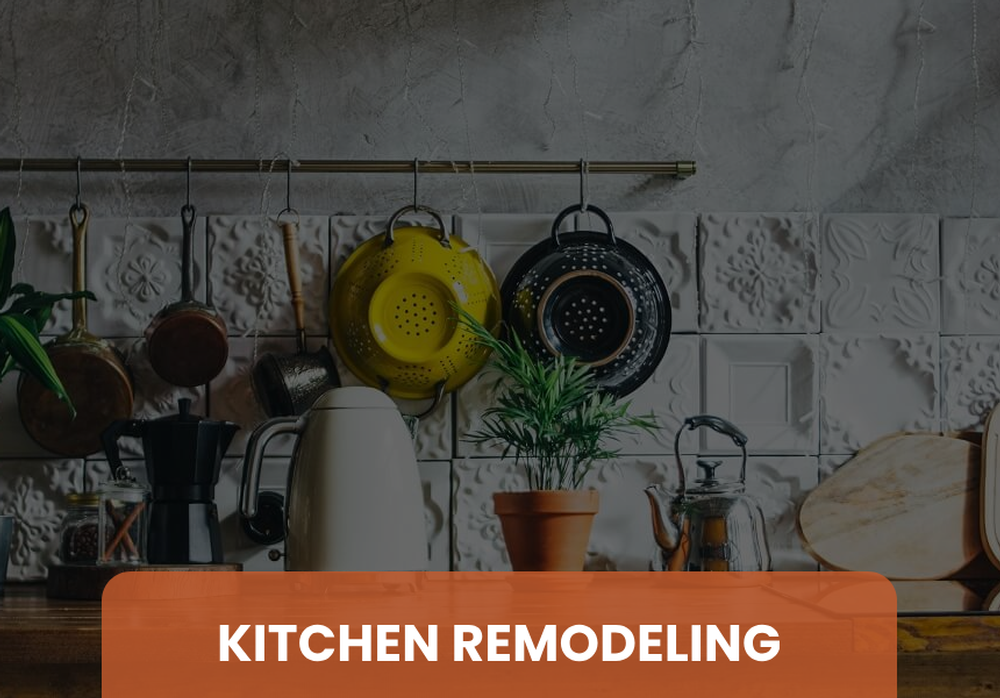As environmental concerns continue to rise, sustainable living has become more than just a trend; it’s a conscious way of life. One significant area where sustainability can make a big difference is in home remodeling projects, particularly in the kitchen. Kitchens are among the most heavily used spaces in any home, so it’s essential to consider eco-friendly choices when planning renovations. Incorporating sustainable materials into your kitchen remodeling project reduces your environmental footprint and also improves the longevity and aesthetic appeal of your space.
In this blog, we’ll explore how to incorporate sustainable materials in your kitchen remodel, from countertops and cabinets to flooring and appliances.
Sustainable countertop materials
Countertops are a focal point in the kitchen, and choosing sustainable materials for them can have a big impact. Fortunately, there are numerous eco-friendly options available that offer both durability and style.
Recycled glass countertops: Made from reclaimed glass, these countertops are eco-friendly and visually striking. They’re durable, heat-resistant, and come in a variety of colors, making them a great sustainable option for modern kitchens.
Bamboo: Bamboo is a fast-growing, renewable resource that is harder than many hardwoods, making it a durable countertop material. It also has a warm, natural look that adds a rustic charm to your kitchen.
Reclaimed wood: Reusing old wood from other sources is a great way to reduce waste. Reclaimed wood countertops provide a unique, aged appearance and help reduce the need for virgin timber.
Recycled paper composite: Composed of post-consumer recycled paper and resin, this material is incredibly strong and lightweight. It’s also heat-resistant, making it a practical choice for kitchen countertops.
Eco-friendly cabinetry
Cabinetry is a large component of any kitchen remodel, and opting for eco-friendly cabinets can help reduce the environmental impact of your project. Many traditional cabinets contain formaldehyde and other harmful chemicals, so it’s important to choose alternatives that are both healthy and sustainable.
FSC-certified wood: The Forest Stewardship Council (FSC) ensures that wood products come from responsibly managed forests. Choosing FSC-certified wood for your kitchen cabinets helps protect ecosystems and ensures sustainable forestry practices.
Bamboo cabinets: Like countertops, bamboo can also be used for cabinetry. Its rapid growth makes it a highly renewable resource, and its natural grain adds a modern aesthetic to your kitchen design.
Reclaimed wood cabinets: Repurposing old wood for kitchen cabinets is another excellent option for reducing waste. These cabinets often come with a rustic or vintage look and can be custom-made to fit your design preferences.
Formaldehyde-free plywood: When selecting cabinets, avoid traditional plywood that contains formaldehyde, a harmful chemical often used in adhesives. Opt for formaldehyde-free alternatives that use non-toxic glues and finishes.
Sustainable flooring options
Flooring is another key element in a kitchen remodel, and sustainable options are available in various materials that provide durability and beauty.
Cork: Cork is harvested from the bark of cork oak trees, which can be done without harming the tree. This makes cork an extremely sustainable option. It’s also naturally resistant to mold and mildew, making it an excellent choice for kitchens.
Bamboo flooring: Bamboo is great for countertops and cabinets and also as a flooring material. It is highly renewable, durable, and comes in a range of finishes to suit different kitchen styles.
Linoleum: Often confused with vinyl, linoleum is made from natural materials such as linseed oil, wood flour, and cork dust, making it a sustainable flooring option. It’s available in various colors and patterns and is biodegradable at the end of its lifecycle.
Reclaimed wood: Using reclaimed wood for flooring adds character to your kitchen and reduces the need for new timber. It’s an eco-friendly option that gives your kitchen a warm, lived-in feel.
Recycled tile: Tiles made from recycled materials such as glass, stone, or porcelain are eco-friendly and versatile. They can be used for flooring, backsplashes, or even accent walls, adding a unique touch to your kitchen.
Low VOC paints and finishes
The air quality in your kitchen is important, especially when you’re cooking and spending time with family. Many traditional paints and finishes release volatile organic compounds (VOCs), which are harmful chemicals that can negatively impact indoor air quality. When remodeling your kitchen, look for low or zero-VOC paints, stains, and sealants.
Low VOC paints: These are specially formulated to have fewer chemicals, making them healthier for both you and the environment. Using low VOC paint for your kitchen walls or cabinets will help reduce harmful off-gassing and improve air quality.
Natural oil finishes: For wood surfaces like cabinets, countertops, or flooring, opt for natural oils like linseed or tung oil. These provide a protective finish without the harmful chemicals found in conventional finishes.
Water-based finishes: Water-based finishes are another eco-friendly option that contains fewer VOCs compared to oil-based finishes. They are ideal for sealing countertops, cabinetry, and flooring while offering a long-lasting finish.
When choosing materials for your eco-friendly kitchen remodel, opt for sustainable and low-toxicity options. This not only benefits the environment but also creates a healthier space for you and your family.
Need Help With Kitchen Renovations? Contact Emcab Kitchens!
At Emcab Kitchens, we specialize in eco-friendly kitchen renovations that are both sustainable and stylish. Our team of experts can help you create a beautiful and functional kitchen while also reducing your impact on the environment. Contact us today for more information and to schedule a consultation!



